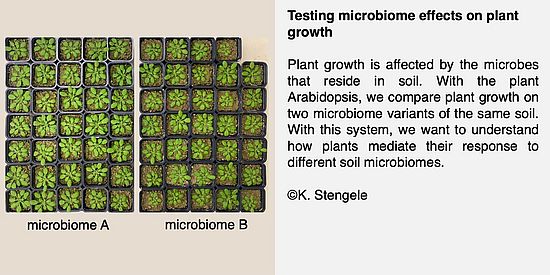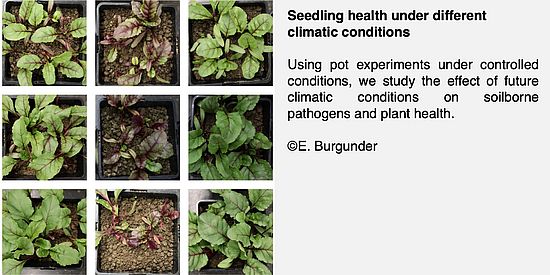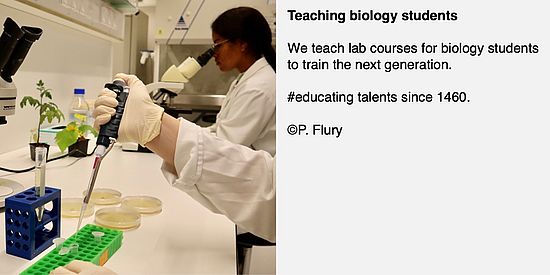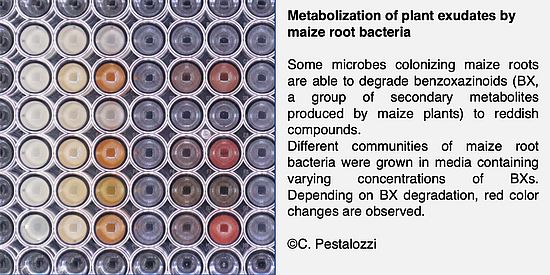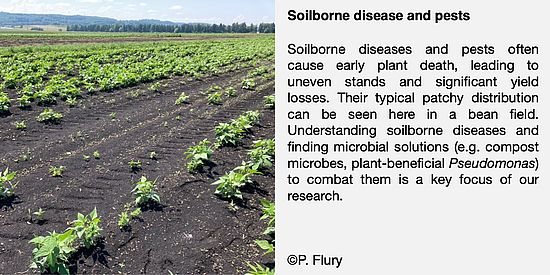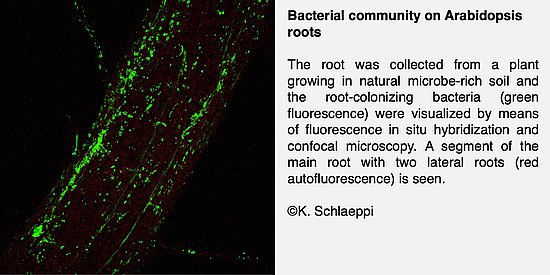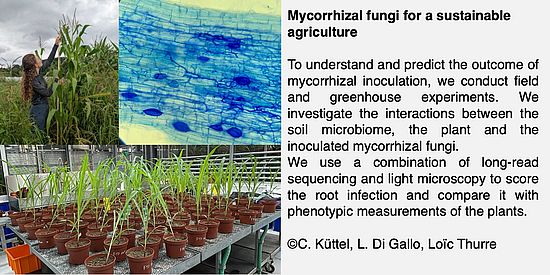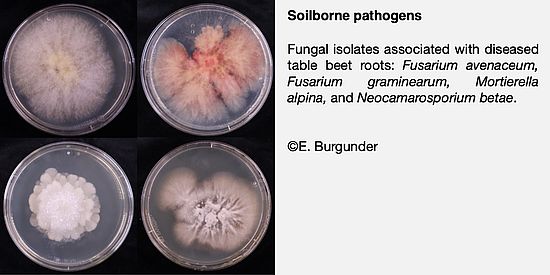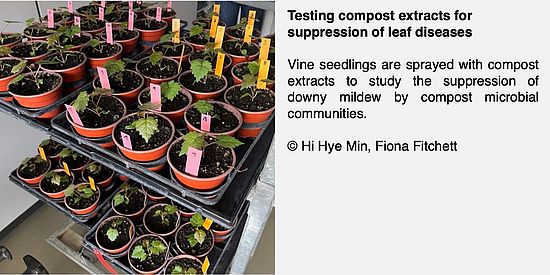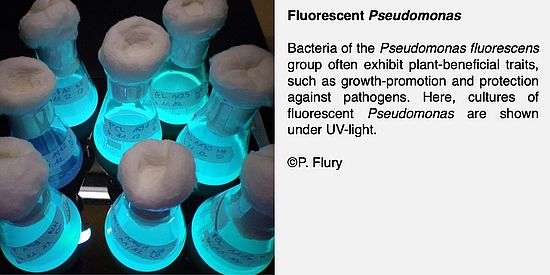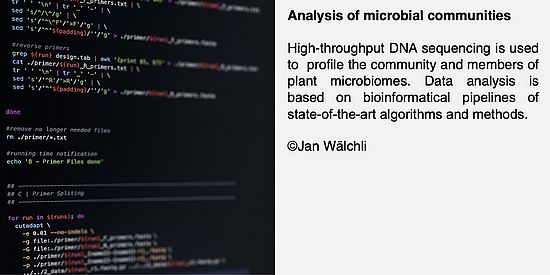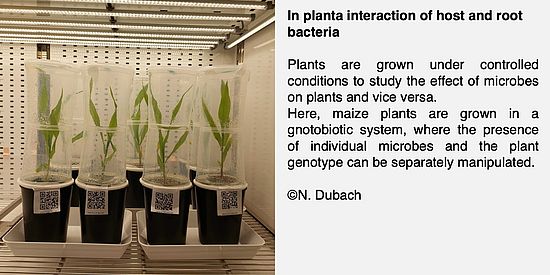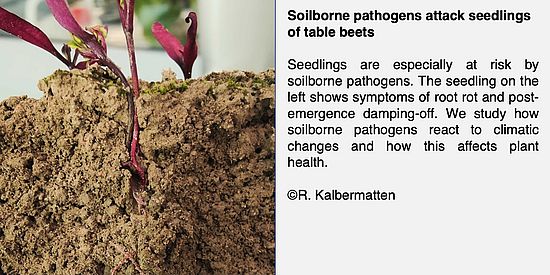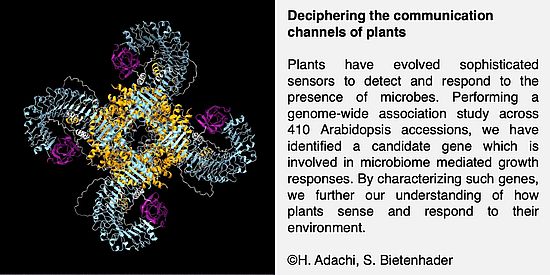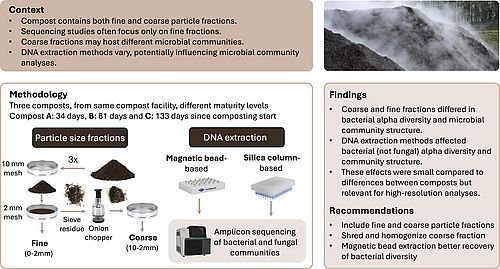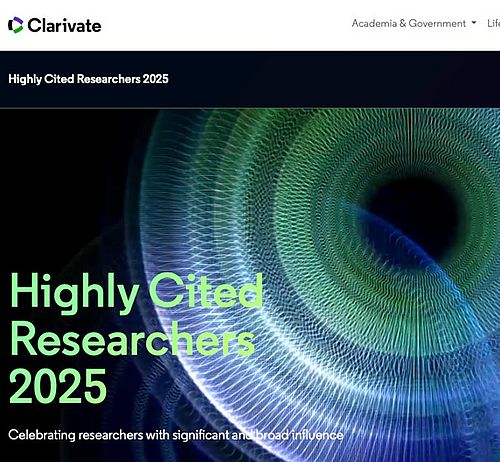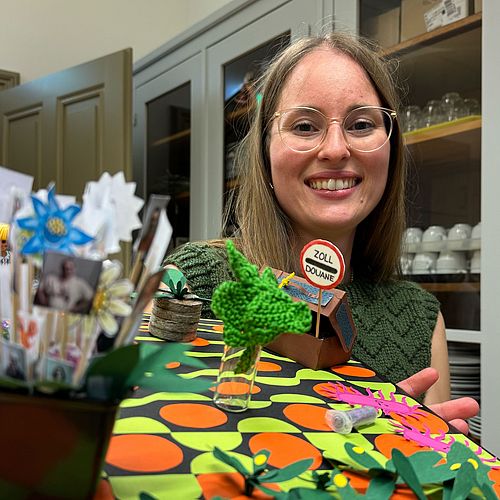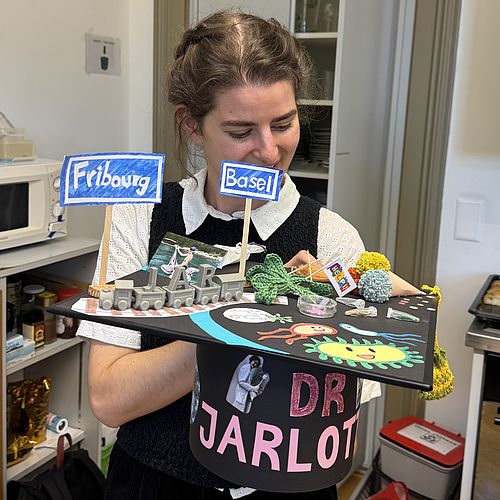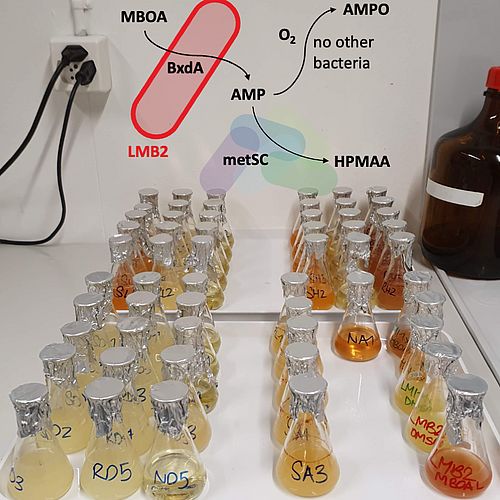Über uns
Pflanzen beherbergen eine artenreiche Mikrobiota mit einer Vielzahl von Bakterien, Pilzen oder Oomyzeten und stehen in ständiger Interaktion mit diesen. Diese Mikroorganismen fungieren kollektiv als Mikrobiom und beeinflussen, ähnlich wie die mikrobiellen Gemeinschaften im menschlichen oder tierischen Darm, die Ernährung und Gesundheit ihres Wirtes. So können beispielsweise Mitglieder der Pflanzenmikrobiota die Nährstoffaufnahme verbessern oder den Schutz vor Krankheitserregern gewährleisten. In unserer Forschung befassen wir uns mit den folgenden grundlegenden Fragen der Biologie von Pflanzenmikrobiomen:
- Wie kommunizieren Pflanzen mit der Wurzelmikrobiota und nehmen Einfluss auf deren Aktivitäten?
- Was ist der funktionelle Beitrag der Wurzelmikrobiota zum Pflanzenwachstum und zum Krankheitsschutz?
Ziel unserer Forschung ist letztlich, dass nützliche Interaktionen zwischen Pflanzen und Mikroorganismen in einer intelligenten und nachhaltigen Landwirtschaft eingesetzt werden können. Wir arbeiten hauptsächlich mit Arabidopsis thaliana und Zea mays als Modellpflanzen und kombinieren Feld- und Laborexperimente mit Methoden der Mikrobiomik, Molekularbiologie, Mikrobiologie, Pflanzengenetik und Bioinformatik.
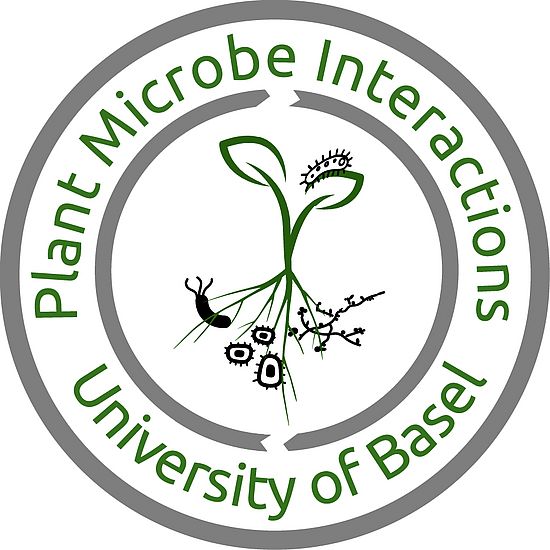
Adresse
Universität Basel
Departement Umweltwissenschaften
Pflanzen Mikroben Interaktionen
Bernoullistrasse 32
CH-4056 Basel
News
Quick Links
Social Media

